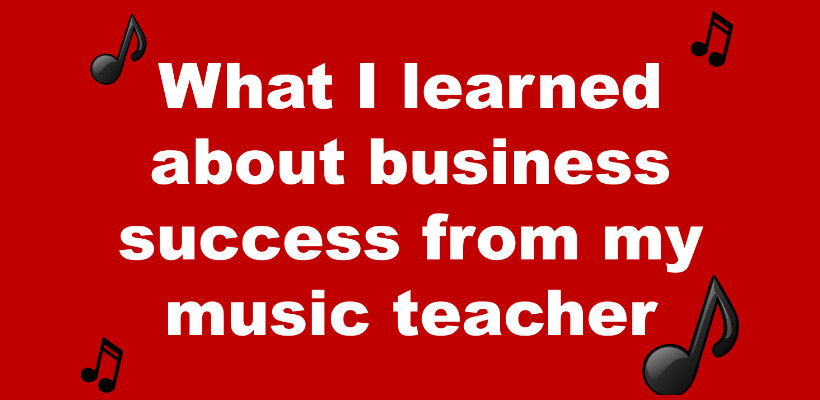
Yesterday I learned about the passing of Paul McKay, my high school music teacher. I can't believe it's been 30 years since I graduated. I have to admit that I'll miss seeing his smiling face and big bear hugs at our upcoming high school reunion.
Losing someone, even if it's someone I haven't talked to in years, always causes me to reflect on the impact that individual had on my life. Mr. McKay helped a shy and quiet young girl find her voice and her confidence through the magic of music education. While my parents valued math and sciences, it was music, art and English that made the greatest impacts on my life.
As a tribute, here's what I learned:
Practice, Practice, Practice
Unless you're a prodigy, very few people pick up an instrument or a piece of music and get it right the first time. Music taught me the importance of first learning and then perfecting my craft through experience and practice. It created a love of continuous improvement and life-long learning.
You can learn from your mistakes
The artistic process is about trying something and then learning from your mistakes to make improvements. We approached new music and styles with an open expectation that we would fail before we succeeded. It was a safe way to take risks and appreciate the journey along with the destination.
Nothing beats accomplishing something as a team
In our school performances, we were most often a part of groups - orchestra, concert band, stage band, choir, show choir or quartet. Everyone had a responsibility to do their part in performing as a group. We each had accountability for our own parts, but we couldn't accomplish our goals without one another....and when we all played our part, the results were magical! In a world where we tend to value the hero, I learned the importance of each individual in the team contributing to something greater.
The importance of listening
More important than your ability to play your instrument or sing your part was your ability to watch the conductor and listen to others. That listening helped to ensure that the result was music versus noise. Listening helped us adjust our sound and tone in order to succeed.
At times you lead; at others you provide support
In music, there were times you were the hero or soloist and other times when you were in the background providing support. Being able to play the right role at the right time taught us to be comfortable sharing success with others.
Value the past and the future
I personally loved all genres of music...from Bach, Beethoven and Handel to big band, jazz, blues and rock. Music and music theory helped us value the innovation and risks taken that contributed to the evolution of music and allowed us to appreciate continuous change that pushed the limits of what we thought was possible.
Diversity makes you stronger
In every piece of music, having only one instrument or one part tends to be a little boring. Ensuring you brought together diverse instruments and diverse voices allowed for the whole to simply be greater than the sum of its parts. That diversity and variety of sound made the piece stronger. Today, I look for diversity of skills, experience, and ideas to help drive creativity and innovation along with results.
In a world where funding for arts education is undervalued when compared to STEM (Science, Technology, Engineering and Math) education, let's not forget the impact that it can have on developing the well-rounded leaders of the future.
Thank you Mr. McKay.
If you found this post helpful, you’ll also enjoy our newsletter. It’s a monthly collection of ideas, resources, and inspiration for those passionate about enabling, engaging and empowering employees through strategic internal communication.